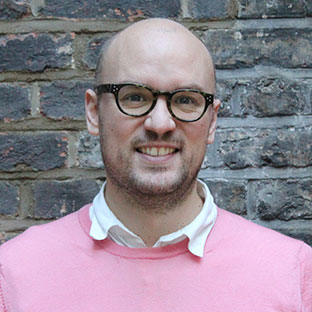We've launched The Cultural Learning Evidence Champion’s Handbook, to support arts and cultural educators to get to grips with ‘evidence-rich practice’.
Using evidence of how others have made a difference in arts and cultural learning and evaluating our own impact can help the whole sector improve and become more sustainable.
The trouble is that evidence gathering, evaluation planning and impact measurement are hard and no one ever tells you what you need to be good at, to be good at using evidence.
That was the starting point of The Cultural Learning Evidence Champion’s Handbook.
When we worked with the Arts Council Bridge Organisations to find out why, lots of cultural learning professionals told us that they wanted to do more, but weren’t sure how to go about it.
The Handbook is designed to make it easier for anyone to ‘do’ evidence and evaluation. It focuses on four thematic areas of evidence-rich practice; Source, Learn, Lead and Share (developed from Naomi Bath's early ideas published here).
Within each of these themes we identify the attitudes, approaches and key skills of an Evidence Champion.
You don't have to be an evidence expert to be an Evidence Champion, however. There’s advice on the things you can do right now with the teachers, arts and cultural educators, funders and evaluators you collaborate with to make arts and cultural learning more evidence-rich.

Why be an Evidence Champion?
Achieve quality
If your work in cultural learning aims to improve outcomes for participants, evidence-rich practice helps you know if you have made the difference you set out to make and understand exactly how you have done it. Knowing those things is essential if you want to be able to achieve repeated success in the future.
Advocate for the arts
Evidence-rich practice helps you advocate for the arts even if an evaluation reveals that you didn’t get the results you’d hoped for. Improving children’s learning outcomes is hard and evidence that the arts can make a difference isn’t the same thing as proof that they always make a difference. Your commitment to evaluating your efforts (and not relying on generalised claims about the arts) demonstrates your commitment to improving outcomes, allowing for better conversations with others who care about children’s learning.
Learn
Evidence-rich practice allows you to more reliably use your own work, and that of others, to identify your next steps. Realising that your activity hasn’t had the effect you’d hoped for isn’t a failure, it’s a lesson. Having a clear idea of why your activity/programme/course didn’t make the difference it set out to, allows you to identify changes for next time. And while evidence and evaluation can become very complicated, it’s possible to learn a lot by doing simple things well.

How to get involved
Read the Handbook
Beginners can be Evidence Champions, just as much as experts can, but you might want a little guidance when you’re taking your first steps. We hope that the handbook will help you love evidence and evaluation, become a champion for them and spread the good word!
Don’t do it alone
The Handbook was inspired by our work with the Arts Council Bridge Organisations to set up an Evidence Champions Network. They are a group of evidence beginners and experts that includes school leaders, teachers, cultural educators, independent evaluators and funders, all working together to encourage evidence-rich practice in arts and cultural learning.
If you want to contact the Evidence Champions in your area, reach out to the RSA using culturallearning@rsa.org.uk and we’ll point you in the right direction! (Currently limited to England because of how we’re funded, sorry!)
Go forth and be a champion!
Sharing is one of the four themes of evidence-rich practice, so show others you care about arts and cultural learning, by sending them a link to The Cultural Learning Evidence Champion’s Handbook.




Be the first to write a comment
Comments
Please login to post a comment or reply
Don't have an account? Click here to register.